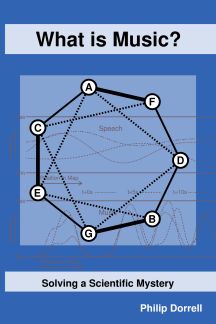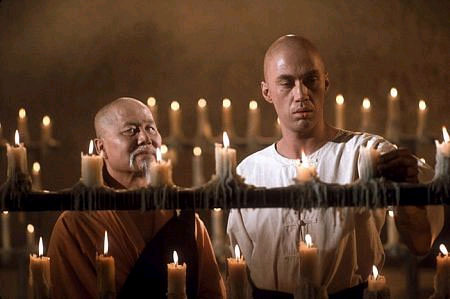
I have company coming this evening. My niece and her fiancee, my brother and my brother’s wife. So yesterday I cleaned house and cooked.
As I worked my mind continued to buzz with ideas about music and church music.
on "What's my line?"”] I have thought long and hard about the function of music. For me all sound is music. I think I learned this from John Cage’s writings and thinkings.
I have thought long and hard about the function of music. For me all sound is music. I think I learned this from John Cage’s writings and thinkings.

Yes, as Ray says in his comment yesterday, music is a form of communication. But it is much more than that to me. Encompassing communication, music is also a basic factor in making meaning for humans. Neurologists are increasingly discovering how important this aspect of being is to the physiology of the brain and therefore the physiology of thinking and being.

At the same time after wondering “what music is for?” I have concluded it is to make meaning.

The insights of neurologists coincide nicely with my own predilection to be human is to be one who seeks and construes meaning from the confusing and chaos of life.
So if music is a conversation of meaning it is one not only between breathing living people (in person and alive!), it also means to be in conversation with humans who have already lived (like but not limited to great composers) and humans who will live in the future.

This is a bit cosmic I know. But it is the way I see this stuff.

I also find it interesting to wonder “where” the music is. I have been reading “The Changing Sound of Music” by Daniel Leech-Wilkinson [link to entire work online]. He confirms my own intuitions and conclusions that music is much more than what is written on a page or even what makes up one recording.

Among the many concepts I have learned from Leech-Wilkinson is the importance of every occurrence of a piece of music whether that be in the form of performances over the life of the piece or existing editions and performance practices regarding the creation of those editions.
Of the first, the people who make the music happen, the performers, are restored to their position as essential. Music notation is an imperfect process. Ultimately, it is suggestions for a fluid improvisation of sound by one musician (the composer) to another (the performer or even recordist).

Leech-Wilkinson uses historical recordings to make this point. Chopin writes three quarter notes. How did he play them? Surely not always evenly. We can tell from recorded performances that excellent pianists will play them markedly different from each other. Each performance is part of the piece. Where is the music?

Leech-Wilkinson suggests convincingly to me that the a piece of music as a concept extends to all performances of it. And more than that, individual performances add to the what ultimately makes up the piece of music.
He does not discuss editions of music. Probably because he is in the process of demystifying the printed music which has dominated academic thinking for about a hundred years or so. When I was in school most teachers (and probably students) thought that the music of Bach and other great composers was solely what was on the page. They and we used the page to think about form and compositional technique.
There is truth to this but like the blind men and the elephant it is only a part of the truth.

It omitted the transformations a piece goes through via its performances and recordings.
I like including them. It makes more sense to me.
It also answers a question I have about whether performing historical music is some sort of museum ritual activity of preservation.
If one thinks of music this way, every time a piece of music is performed it is changed and added on to. It is recreated in the context of now which is always different.
In the comic novel I am reading, “Home Land” by Sam Lipsyte, there is a noxious father figure who despite his own repulsiveness Lipsyte has yell at his son the phrase: “Gravy boat! Stay in the now!”

The main character remembers his dad yelling this at him at supper. Apparently they didn’t have a gravy boat only something “more on the order of a mason jar filled with pan-spooned turkey juice.” But the dad was trying to get the kid’s attention.

If all we really have is “the now,” then remaking music in the now is very important. Especially to me.

After taking my Mom to the doctor and “Miracle Ear” (I love the names people give to business), I am meeting with my boss for the first time since Hell Week. I think the main thing I might suggest we think about is the impact of the growing size of our church community on the rituals of Holy Week.

There is a whole theory of church size and our community is rapidly moving into what is called “program size.” At this size, you lose the folksy “every body knows your name” style and have to have paid staff and programs to help the situation thrive.

We have staff now, but the head priest is the only full timer. The rest of us do full time on a part time salary (pretty usual in church work, sometimes hardly avoidable). This is another aspect of a shifting church size. I have been talking to my boss for a while about the difference between what they pay me and my skills, experience, education and knowledge, what the business community calls, in its ugly phrase, credentials and expertise. I’m not expecting them to pay me what professionally they should. It would just help my morale if it was acknowledge that I am worth what the American Guild of Organists says someone with my experience and degrees is.
My boss does recognize my expertise and regularly consults me on many aspects of church life. I like that she is not dependent on my observations and advice but just likes to hear it and think about them. I don’t want the responsibility of leadership of any institution, but I do think I sometimes have insights that people inside institutions miss.

And I try to balance quietly doing my job and not keeping insights to myself when they occur.

My boss will probably be happy to hear whatever I have to say and then will ponder or discard it.

I think that’s good.

But of course it’s just my usual hubris-filled opinion. Heh.

I believe that the person is Gary Moore. Easy to miss at your age, eh! I think you are worth the market price, but what do I know. You should be a Professor of Music and teach others the way to enlightenment. I would take the class.
Enlightenment like Kung Fu enlightenment? Heh. Thanks for the correction. And kind words.